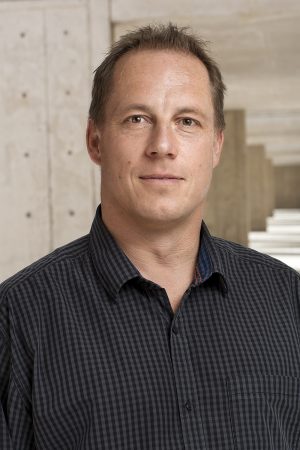
January 25, 2024
LA JOLLA—The Salk Institute has named Jan Karlseder as its new senior vice president and chief science officer (CSO). Karlseder, a professor in Salk’s Molecular and Cell Biology Laboratory, director of the Paul F. Glenn Center for Biology of Aging Research, and Donald and Darlene Shiley Chair for Research on Aging, will assume the role on February 1, 2024.

Karlseder’s selection is the result of a competitive, international search led by executive recruitment firm Spencer Stuart and an internal search committee, which evaluated a large pool of highly qualified candidates over the past 10 months.
As CSO, he will maintain his faculty position and research laboratory while working with Salk President Gerald Joyce to develop and implement the Institute’s overall scientific strategy, as well as oversee research operations in support of this strategy, including the grants development, scientific core facilities, and animal resources teams. Karlseder succeeds Professor Greg Lemke, who served as CSO since April 2023.
“The CSO plays a critical role in supporting the faculty, elevating our research, and identifying new opportunities for partnerships and research funding,” Joyce says. “We had a long list of qualities we sought in a CSO and Jan fulfills them all—he is an internationally recognized scientist, admired leader, and excellent communicator, and he has experience in philanthropy. We are grateful to Jan for accepting this role, and I’m excited to see what we’ll accomplish together.”
Karlseder has been a member of Salk’s faculty since 2001. His current research focuses on telomeres—the caps at the ends of chromosomes that shorten as we get older. Telomeres regulate genome stability, inflammation, cancer initiation, and other crucial cell activities. Karlseder believes that a better understanding of telomere integrity and length regulation will lead to a deeper understanding of the aging process and age-related disease, as well as help uncover new ways to inhibit cancer.
Karlseder has received numerous awards and honors, including the V Foundation Award for Developing Scientists, a Forbeck Scholar Award, and the Glenn Award for Research in Biological Mechanisms of Aging. He earned his BS in Biology at the University of Innsbruck and PhD in Molecular Biology at the University of Vienna in Austria. He completed his postdoctoral fellowship at Rockefeller University in New York.
“I am excited to take on this new challenge in support of the Salk Institute’s faculty and our outstanding science,” Karlseder says. “I look forward to working with Salk’s leadership team, scientific cores, facilities, and staff to promote our mission and what we do best: Making impactful discoveries in fundamental science in an inclusive and welcoming environment.”
Salk’s CSO search committee included Trustees Carol Gallagher and Sanjay Jha; faculty members Gerald Joyce, Nicola Allen, Wolfgang Busch, and Tony Hunter; and Nonresident Fellow Carla Shatz; supported by Salk vice presidents Kim Witmer and Sue Bacino.
“I’m grateful to the search committee for lending their valuable time and expertise to this rigorous process,” Joyce says. “Thanks to this outstanding example of our collaborative community and to Jan’s willingness to serve in this capacity, we are well positioned to enhance and expand our high-impact science, and ultimately to create a healthier world.”
Office of Communications
Tel: (858) 453-4100
press@salk.edu
Unlocking the secrets of life itself is the driving force behind the Salk Institute. Our team of world-class, award-winning scientists pushes the boundaries of knowledge in areas such as neuroscience, cancer research, aging, immunobiology, plant biology, computational biology and more. Founded by Jonas Salk, developer of the first safe and effective polio vaccine, the Institute is an independent, nonprofit research organization and architectural landmark: small by choice, intimate by nature, and fearless in the face of any challenge.